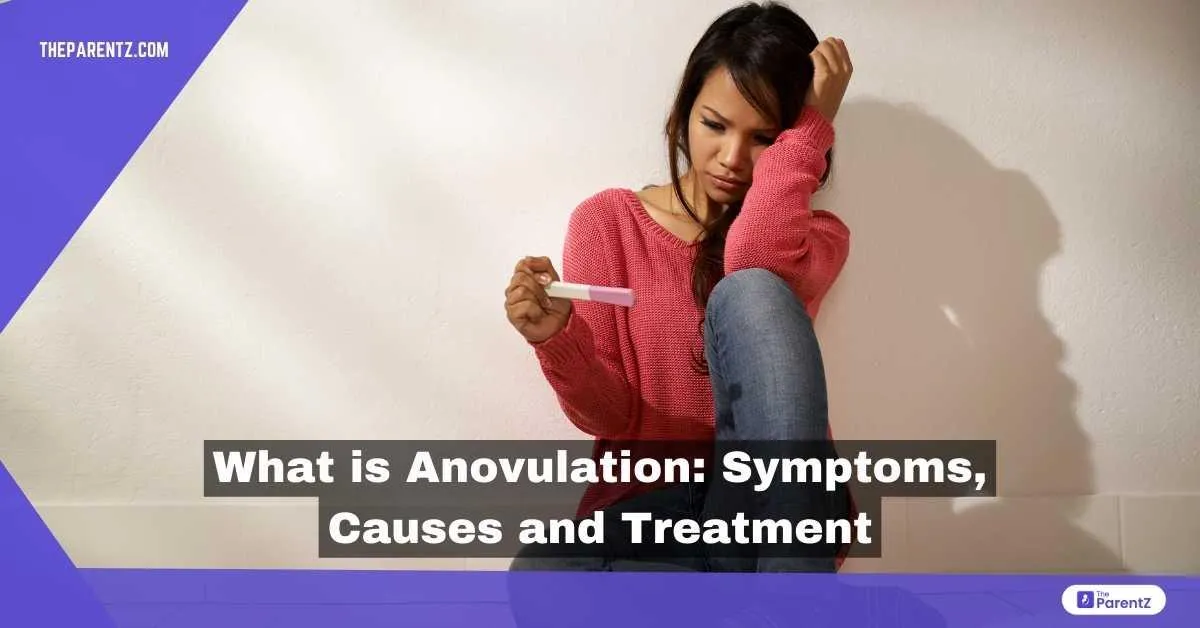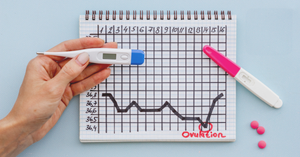Anovulation—a condition where ovulation simply doesn’t occur, which makes it difficult or rather impossible to conceive. While it may not always show obvious signs, anovulation is one of the most common causes of infertility, affecting nearly 1 in 10 women of reproductive age, as per a study.
For many women, ovulation is perhaps a silent process happening every month. But for some, hormonal imbalances, stress, or underlying health conditions can actually disrupt this process.
So, how do you know if you’re not ovulating? Read this article to know the causes of anovulation and how it can be treated.
What Is Anovulation?
Anovulation occurs when the ovaries fail to release an egg during a menstrual cycle. Normally, during ovulation, a mature egg is released from the ovary, ready for fertilization. In anovulation, this step doesn’t happen, which eventually disrupts the natural reproductive process.
Symptoms of Anovulation
Unlike other reproductive health issues, anovulation doesn't necessarily show any signs. Many women don’t realize they aren’t ovulating until they struggle to conceive. However, there are some common signs you can look for:
- Irregular or absent periods
- Heavy or light menstrual bleeding
- No noticeable ovulation symptoms
- Infertility issues
- Unexplained weight gain or loss
- Acne, excess hair growth, or hair thinning
What Causes Anovulation?
Anovulation can be an outcome of multiple possible causes. Some of the most common include:
Hormonal Imbalances
Hormones are the body’s messengers, and when they’re out of sync, ovulation can take a hit. Irregular levels of estrogen, progesterone, or luteinizing hormone (LH) can prevent the release of an egg.
Polycystic ovary syndrome (PCOS), for example, is one of the leading causes of anovulation. It is typically characterized by high levels of androgens (male hormones), irregular cycles, and ovarian cysts. Besides, thyroid disorders can also disrupt menstrual cycles and cause anovulation. Moreover, high prolactin levels can even interfere with ovulation.
Stress and Lifestyle Factors
Physical and emotional stress can cause hormonal imbalance, leading to missed ovulation. Factors including chronic stress, excessive exercise, and sudden weight changes may also disrupt ovulation by altering hormone production.
Primary Ovarian Insufficiency (Early Menopause)
Women experiencing early menopause, before age 40, often have irregular or absent ovulation due to declining ovarian function.
Medical Conditions and Medications
Certain conditions such as diabetes, eating disorders, or long-term use of birth control pills can also contribute to anovulation.
Treatment
Anovulation is often treatable, and most women can regain normal ovulation with the right treatment, which depends on the underlying cause:
Lifestyle Changes
For women with lifestyle-related anovulation, simple changes can restore ovulation naturally. Here are some effective tips.
- Reduce stress through yoga, meditation, or therapy.
- Maintain a healthy weight. Yes, even a 5–10% weight loss in overweight women can restore ovulation.
- Eat a balanced diet rich in protein, healthy fats, and complex carbs.
- Avoid excessive exercise and switch to low-impact activities such as walking or Pilates.
Medications to Induce Ovulation
If natural methods don’t work, fertility medications may be prescribed:
- Clomiphene citrate (Clomid) to stimulate ovulation.
- Letrozole (Femara), which is often used for women with PCOS and typically has a higher success rate than Clomid, especially in PCOS-related infertility.
- Metformin to help regulate ovulation in women with PCOS and insulin resistance.
- Gonadotropins , which are injectable hormones for more severe cases.
Treating Underlying Conditions
- For PCOS-related anovulation, it is essential to treat PCOS by lifestyle changes, medications such as Metformin, and sometimes birth control pills.
- Thyroid disorder management may also help in restoring ovulation if the thyroid is the issue.
- In rare cases, surgery may help induce ovulation.
Final Thoughts
Anovulation can be frustrating, especially for women trying to conceive. However, with proper diagnosis and treatment, most women can regain ovulation and achieve hormonal balance.
If you suspect anovulation, don’t ignore it. Talk to your doctor for an early diagnosis.








Be the first one to comment on this story.